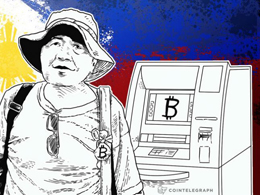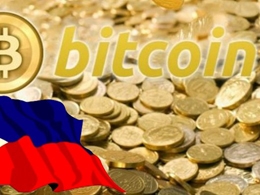
Bitcoin Powers 20 Percent of Remittances From Korea to Philippines
The Philippines is a home to some of the industry’s most innovative startups including Coins.ph and Rebit.ph, that enable cost-efficient remittances from their home country to international recipients. At Bootstrap Manila, Bitcoin startups & investors revealed that 20 percent of remittances from the Philippines to South Korea are processed using Bitcoin. Coins.ph recently secured a $ 5 mln investment from former Google CEO Eric Schmidt’s fund, due to their unique approach that instead of competing with banks and existing financial services, it would be more beneficial for its users to....
Related News
CNBC recently asked, “How bad would it be for the economy of the Philippines if remittances were to dry up?” They proceeded to sign economic indications that this is indeed the route that the Philippine remittance market is headed down—slowing growth in remittances from key remitting markets, such as the U.S., elsewhere in Asia, and other regions. Another fundamental shift in economics pointed to by CNBC: The Philippines appears to be shifting from an economy that relies on sending labor abroad to one that employs labor at home—the proof of this argument is in the booming BPO industry. The....
The Philippines continues to be one of bitcoin’s most promising countries, posting a 20 percent growth in smartphone shipments for Q1 2016. That figure makes it the fastest-growing smartphone market in Southeast Asia. According to IDC and TechinAsia reports, Philippines’ statistics come at a time when other countries in the region experienced lackluster....
India received an estimated $69 bln in remittances in 2015. What would be the best way for Indians to receive this money? World’s largest receiver of remittances. Economic migrants send home a significant amount of remittances every year. According to the World Bank, India was the largest recipient of remittances in 2015 – estimated at $69 bln. Other large recipients of remittances include China - $64 bln - and the Philippines - $28 bln. Indians working in developed countries in the Middle East, America and Canada send significant amounts of money to support their families in India.....
The practically non-existent start-up ecosystem in Philippines has suddenly sprung to life. Thanks to the bitcoin revolution, the number of start-ups, particularly cryptocurrency related ones is increasing from the past couple of years. The success of Bitcoin in Philippines can be attributed to the social and economic factors. The two main factors that has led to a bitcoin boom in Philippines: Philippines has a huge remittance market. Like China and India, there are many Filipino emigrant workers employed across the world. Like in any other developing countries, even the emigrant Filipinos....
The majority of people in the Philippines don’t have bank accounts or credit cards. The largely ‘unbanked’ population is an issue that the country is trying to tackle as it slows down the growth of things like ecommerce. Bitcoin can be a solution to this problem in the Philippines, according to Silicon Valley investor and entrepreneur Ron Hose. He has created a Bitcoin trading site for the Philippines called Coins.ph. As of last year, only 32 percent of Filipinos had a bank account. Of this number, only three percent owned a credit card. Philippine President Benigno Aquino III once noted....





